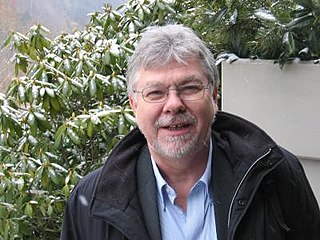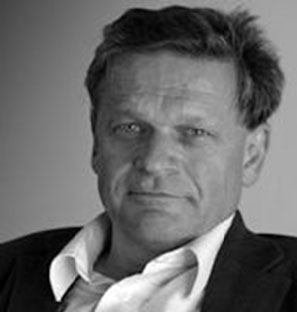
Heidelberg University, officially the Ruprecht Karl University of Heidelberg, is a public research university in Heidelberg, Baden-Württemberg, Germany. Founded in 1386 on instruction of Pope Urban VI, Heidelberg is Germany's oldest university and one of the world's oldest surviving universities; it was the third university established in the Holy Roman Empire after Prague (1347) and Vienna (1365). Since 1899, it has been a coeducational institution.

The University of Tübingen, officially the Eberhard Karl University of Tübingen, is a public research university located in the city of Tübingen, Baden-Württemberg, Germany.
TU Dresden, also as the Dresden University of Technology, is a public research university in Dresden, Germany. It is the largest institute of higher education in the city of Dresden, the largest university in Saxony and one of the 10 largest universities in Germany with 32,389 students as of 2018.
The German Research Foundation is a German research funding organization, which functions as a self-governing institution for the promotion of science and research in the Federal Republic of Germany. In 2019, the DFG had a funding budget of €3.3 billion.

The University of Bremen is a public university in Bremen, Germany, with approximately 18,400 students from 117 countries. Its 12 faculties offer more than 100 degree programs.

The University of Erlangen–Nuremberg is a public research university in the cities of Erlangen and Nuremberg in Bavaria, Germany. The name Friedrich–Alexander is derived the university's first founder Friedrich, Margrave of Brandenburg-Bayreuth, and its benefactor Alexander, Margrave of Brandenburg-Ansbach.

Rudolf G. Wagner was a German sinologist. He was Senior Professor at the Department of Chinese Studies at the Heidelberg University and Co-Director of the Cluster of Excellence "Asia and Europe in a Global Context: Shifting Asymmetries in Cultural Flows".

Hans Georg Bock is a German university professor for mathematics and scientific computing. He has served as managing director of Interdisciplinary Center for Scientific Computing of Heidelberg University from 2005 to 2017. Before this, he had been vice managing director from 1993 to 2004. Hans Georg Bock is a member of the European Mathematical Society's committee for developing countries (CDC-EMS) and responsible member for the region of Asia therein.

Barbara Mittler is a German sinologist. She is co-director of the Cluster of Excellence "Asia and Europe in a Global Context".

Axel Michaels is a Professor of Classical Indology and Religious Studies at Heidelberg University, former Co-Director of the Cluster of Excellence "Asia and Europe in a Global Context" (2014-2019) and since 2014 the Director of the research project Documents on the History of Religion and Law of Pre-modern Nepal. He also was the Speaker of the Collaborative Research Centre SFB 619 “Ritual Dynamics” from 2002 until 2013.

Thomas Maissen is a professor of modern history at Heidelberg University and co-director of the Cluster of Excellence "Asia and Europe in a Global Context". From 2013 to 2023 he was director of the German Historical Institute in Paris.
Johannes Quack is a German ethnologist at the Goethe University Frankfurt whose primary field of study is religion. He is also the head of the Emmy Noether Research Group “Diversity of Non-Religiosity” at the Goethe University Frankfurt.
The Heidelberg Research Architecture (HRA) is the Digital Humanities unit of the Cluster of Excellence "Asia and Europe in a Global Context" at Heidelberg University. It embraces digital resource development, project consultation and trainings for researchers and students. The HRA’s specialists work with researchers and students at the Cluster to form an integrated digital humanities environment for transcultural studies. Its agenda ranges from developing the Tamboti ecosystem that allows transcultural relations to be traced and analysed across diverse media types and disparate objects, to offering hands-on workshops on digital humanities tools for researchers working at the Cluster and Heidelberg University. Furthermore, digital resources and their production are increasingly integrated into teaching environments. The HRA provides advice to researchers on how to conceptualize and implement digital resources to structure their research. As a cooperation partner at local, national, and international level the HRA works together with partners from the public as well as the private sector.
The Hamburg Centre for Ultrafast Imaging (CUI) is a research facility established in the context of the Universities Excellence Initiative by the German Federal and State Governments. The multidisciplinary and interinstitutional cluster is located at Universität Hamburg, Hamburg, Germany, and has been initiated on 1 November 2012. The funding with more than €25 million by the German Research Foundation will run until 31. December 2018. Scientific teams cooperating in the cluster come from the Universität Hamburg, the Deutsches Elektronen-Synchrotron (DESY), the European XFEL GmbH (XFEL), the European Molecular Biology Laboratory (EMBL), and the newly founded Max-Planck-Institute for the Structure and Dynamics of Matter (MPSD). A full application for a second research period of seven years was handed in at the end of 2017 to the German Research Foundation (DFG) for discussion. After the successful application in 2018, the new cluster “CUI: Advanced Imaging of Matter” started in 2019.

The South Asia Institute (SAI) is an interdisciplinary center of the Ruprecht-Karls University Heidelberg in Heidelberg, Germany, for research and teaching on South Asia. In German, it is known as the Südasien-Institut. The regional focus of the research and teaching at SAI are the countries Bangladesh, Bhutan, India, Maldives, Nepal, Pakistan and Sri Lanka. Due to their close linguistic, cultural, and historical ties with the South Asian subcontinent, adjacent regions such as Afghanistan and Tibet are also often included in the work done at the South Asia Institute.
Kerstin von Lingen is a German military historian who specialises in the study of war crimes. She is best known for her works on Field Marshal Albert Kesselring and SS Obergruppenfuehrer Karl Wolff.
The Berlin University Alliance is a consortium of three universities and one hospital in Berlin: the Free University of Berlin, the Humboldt University of Berlin, the Technische Universität Berlin, and the Charité – Berlin University of Medicine.
Isolde Standish is an Australian and British academic film theorist who specialises on East Asia. Mostly known for her works on Japanese Cinema, she is currently an Emerita Reader at the School of Oriental and African Studies (SOAS) in London, England and teaches Post-War Cinema and the Avant-Garde at the Tokyo University of Foreign Studies. Standish mostly works in Japan, South Korea and the United Kingdom. She has been awarded numerous prizes and grants, including the Ouseley Memorial Scholarship, a Japan Foundation scholarship, an AHRC Research Leave Award and a Leverhulme Trust Major Research Fellowship in 2014.
Martina Wagner-Egelhaaf is a Senior Professor at the University of Münster, Germany. She was a Professor of German Literature at the University of Münster, and held a chair in German Literary History with special focus on Modernity and Contemporary Literature. Her fields of research include Autobiography/Autofiction, Literary Theory, Rhetoric, Literary and Cultural Studies, Gender Studies, and the relation of Religion, Politics and Literature.

Hubert Mara is an Austrian Computer Scientist who specializes in Archaeoinformatics and the application of methods from computer science to the humanities, and thus a combination of these fields.













